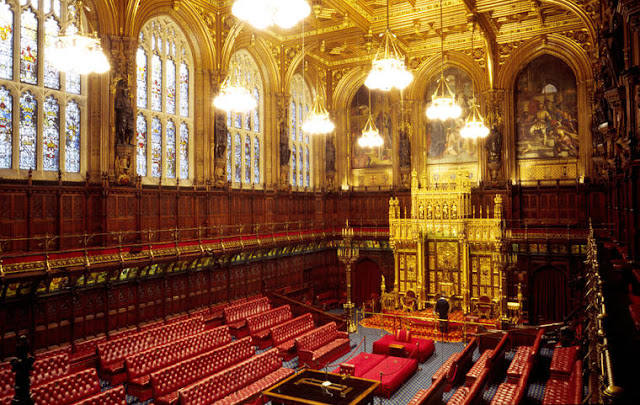Buggery and Parliament, 1533-2017: new article
As I sat in the Lords that afternoon, I was overcome by the enormity of what Parliament was doing: legislators were closing a shameful chapter on a form of sexual oppression that had existed since 1533 and had ruined the lives of thousands of people. By a mechanism which many people find contrived or strange - the pardon - Parliament was effectively saying sorry to all those who had suffered under law that, for over 300 years, put people to death for engaging in consensual sexual acts.
Lord Cashman perfectly captured, on that day, the overwhelming importance of the pardons: "...what we achieve now is not achieved by us but was made possible by a thousand generations of LGBT people and our heterosexual allies who stood up and fought for equality, often giving up their livelihoods, their freedom and, in some instances, their lives. Moments like these make me feel truly humbled as I recognise their sacrifices over hundreds of years."
I did feel "truly humbled".
I also felt amazed to be living through, and witnessing, the House of Lords putting right a wrong that had resulted from a law that it had itself introduced 483 years earlier - the law on buggery - and I had the idea of researching and writing an article on the "life" of this law in Parliament. I thought that I could trace the journey of the buggery statute, conceived in the sixteenth century, and examine how it had evolved over centuries, bringing us to the point we were at in December 2016.
I was subsequently quickly overtaken by other events, and the article didn't get written, until now...
The article "Buggery and Parliament, 1533-2017" is available here: https://papers.ssrn.com/sol3/papers.cfm?abstract_id=3155522
Here is the abstract:
I also felt amazed to be living through, and witnessing, the House of Lords putting right a wrong that had resulted from a law that it had itself introduced 483 years earlier - the law on buggery - and I had the idea of researching and writing an article on the "life" of this law in Parliament. I thought that I could trace the journey of the buggery statute, conceived in the sixteenth century, and examine how it had evolved over centuries, bringing us to the point we were at in December 2016.
I was subsequently quickly overtaken by other events, and the article didn't get written, until now...
The article "Buggery and Parliament, 1533-2017" is available here: https://papers.ssrn.com/sol3/papers.cfm?abstract_id=3155522
Here is the abstract:
Over nearly five centuries the UK Parliament, and its earlier incarnations, frequently legislated to ensure the regulation and punishment of buggery, a form of sexual conduct once generally accepted to constitute one of the most serious criminal offences known to law. In the early twenty-first century, Parliament abolished the offence of buggery and, subsequently, granted pardons to certain individuals previously convicted of it. Whilst some aspects of the history of Parliament’s approach to buggery are well known – particularly in respect of homosexual law reform – much of this history remains obscure. This article provides an in-depth consideration of the making of statute law in Parliament relating to buggery that reveals the dramatically changing attitudes of legislators towards this aspect of sexual conduct and highlights the significance and importance of the pardons granted to those convicted of the offence.


Comments
Post a Comment